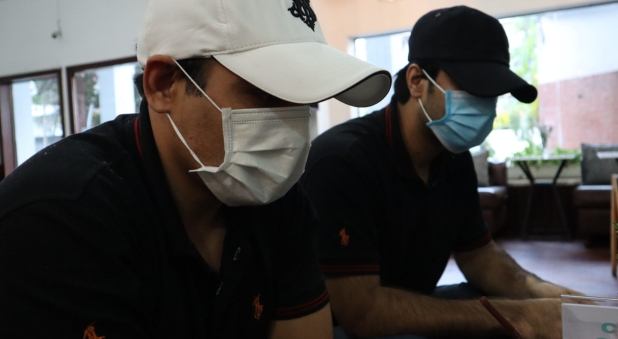Attempts by scammers to swindle Sydney Anglicans have also put the spotlight on a Christian ministry trying to help expose a network of South East Asian people traffickers.
In August, members of several Sydney Anglican churches received messages requesting assistance. The senders, who imitated trusted members of the parish, ask for communication via message only so as not to interrupt “important meetings”.
The messages went to parishioners at several Anglican churches. The rector of Seven Hills, the Rev Mark Williamson, shared the text of the scam message:
“Hello [name], this is Rev Mark Williamson, I’m in a meeting right now, can’t talk on phone but text me back when you get this message, your assistance is crucial and highly appreciated. Blessings.”
“We don’t have any mobile numbers on our website – we just have a generic contact email address,” he says. “It’s not immediately obvious [how they’ve achieved this]. They’ve done research. If you get the right person, it would probably have a higher strike rate because you’re mentioning people by name. But these are people I know really well, so to introduce myself as Rev Mark Williamson is a tip-off.”
Similar texts have been reported in Melbourne churches.
This is a good reminder for us to be wary of fake and fraudulent text messages as scams grow increasingly sophisticated. Says Mr Williamson: “I can’t think of any minister who would ask for [a donation via text]”.
A Sydney Anglican minister will never personally ask you for money via text message, and there will never be a financial situation in a church so urgent that it cannot wait to be discussed in person.
ScamWatch offers helpful guidance on screening unusual messages you might receive. A text may be a scam if it asks you:
- to take immediate action
- to make a payment or transfer money
- to click on a link or call a number
- to log in to an online account with a username, password or other personal information.
There is often a sense of urgency in these texts, so watch out if they claim:
- you or your accounts have been hacked or involved in fraud
- there’s a problem with payments or deliveries
- a lack of action will lead to a cancelled service or a charge or fine
If you believe you have received a scam text message, do not engage with it. Instead, submit a report to ScamWatch to alert authorities and help prevent others from falling victim.
Scam “farms” might be responsible
Christian organisation International Justice Ministries (IJM) has warned these scams often originate from centres where people are trafficked into forced labour.
“This is an emerging issue on our doorstep,” says Steve Baird, CEO of IJM Australia. “Australians know about scamming because it's happening to us more and more, but actually in South East Asia we're seeing hundreds of thousands of people have been trafficked into compounds in countries like Cambodia and Myanmar to actually run these scams.”
IJM says forced scamming is one of the most complex and fastest-growing forms of modern slavery in the world. Criminals use social media platforms to falsely advertise lucrative jobs with good salaries and ideal working conditions. Traffickers will frequently arrange whatever accommodations are necessary to make the offer too good to refuse.
When the victims arrive, perpetrators confiscate their passports, identification documents and mobile phones to prevent them from leaving or calling for help. They are not allowed to leave and are frequently abused and beaten.
According to Mr Baird, while Cambodia initially emerged as a primary hotspot, exploitation has also been reported in Laos, Myanmar and the Philippines. Some experts suggest that the industry may be twice as large in Myanmar as in Cambodia, with criminal groups finding cover behind the country’s political and economic instability.
“They have been forced to do this against their will and held there,” Mr Baird says. “As Christians, we have a responsibility to do something about the vulnerable in our region.”




















